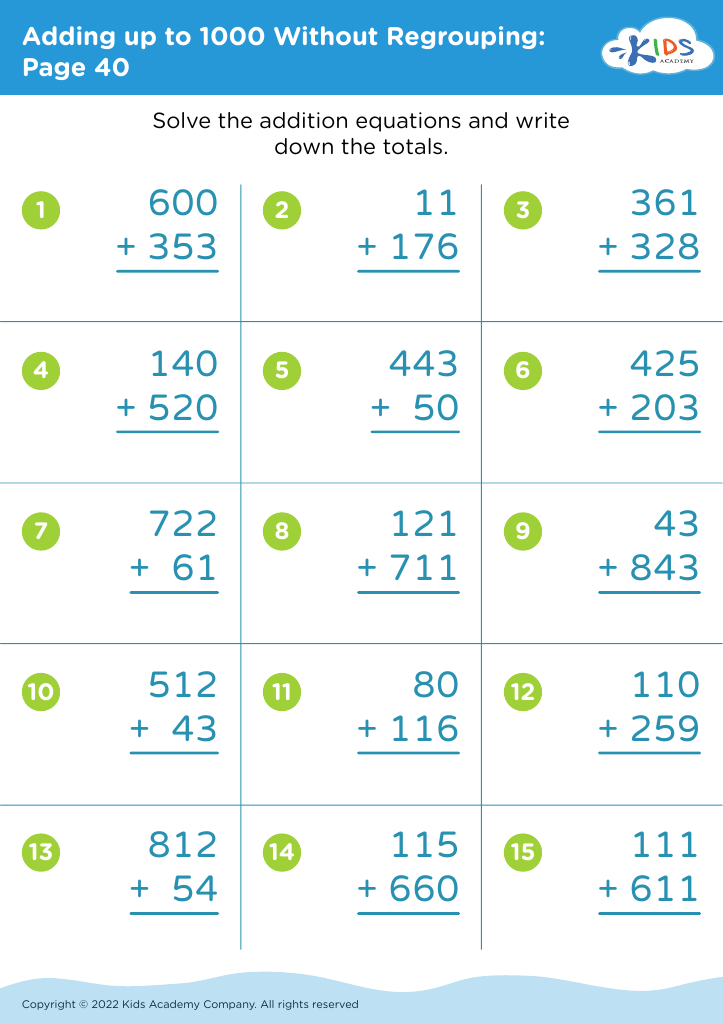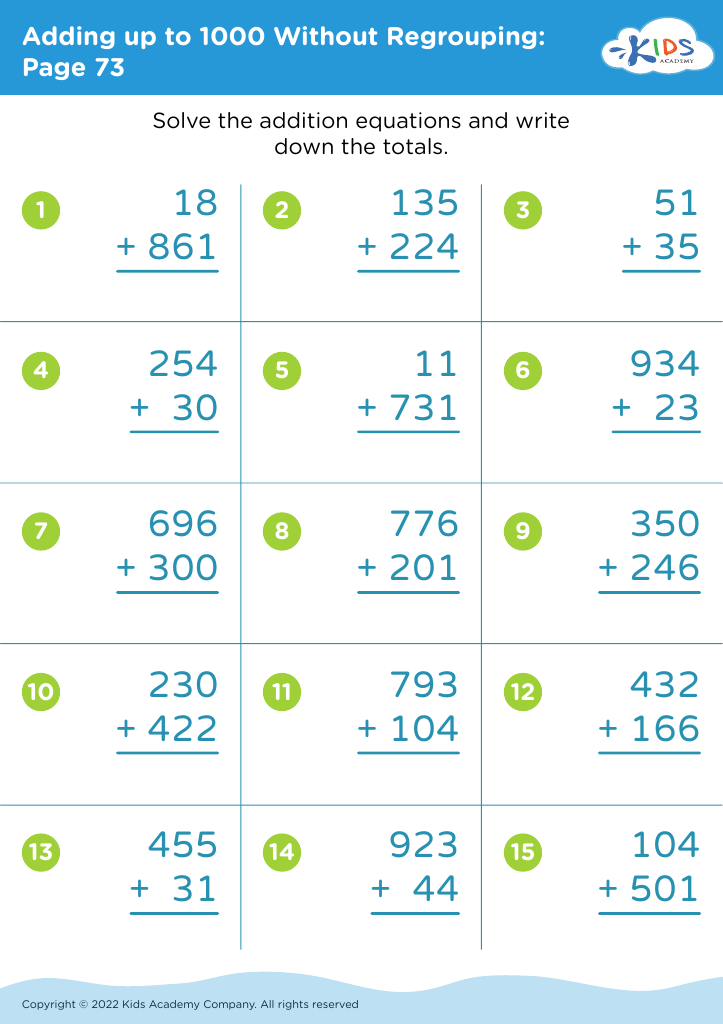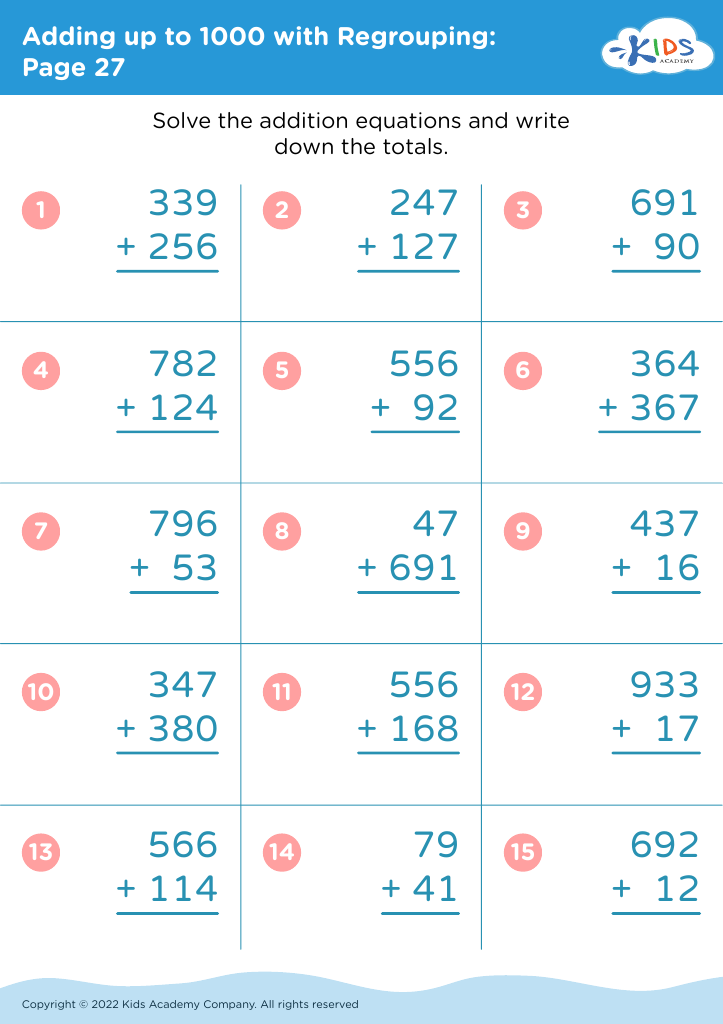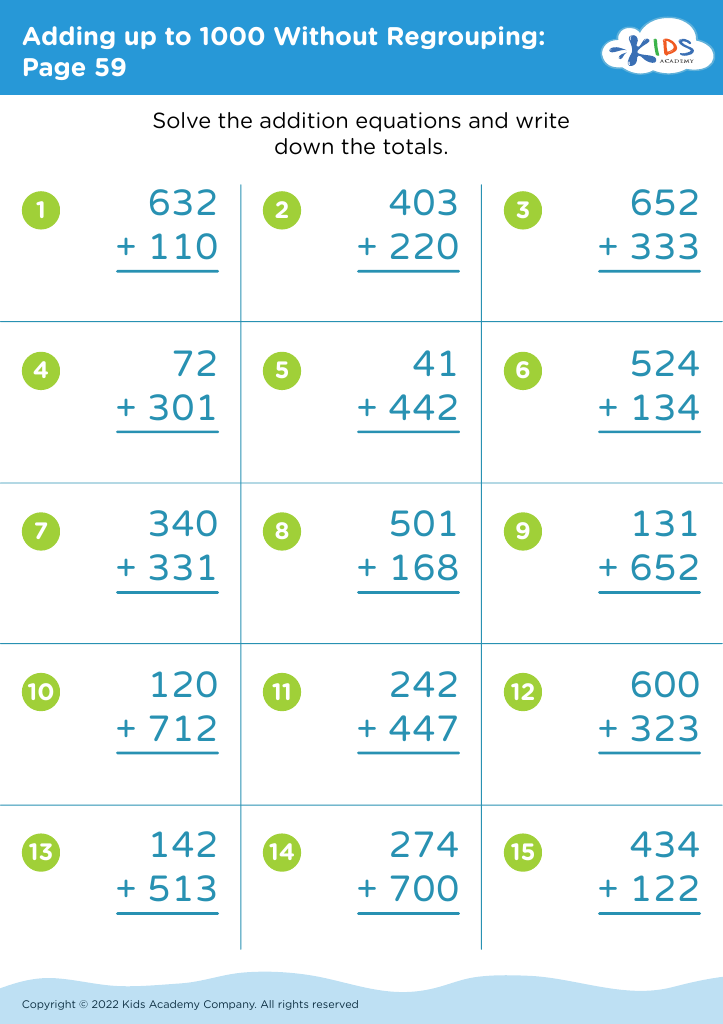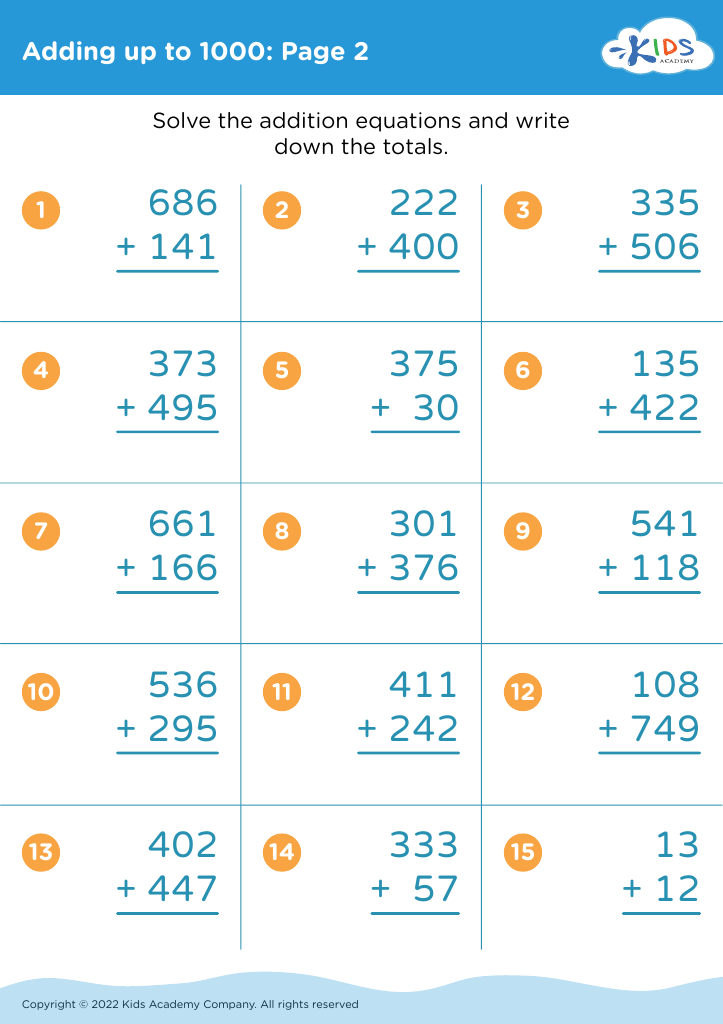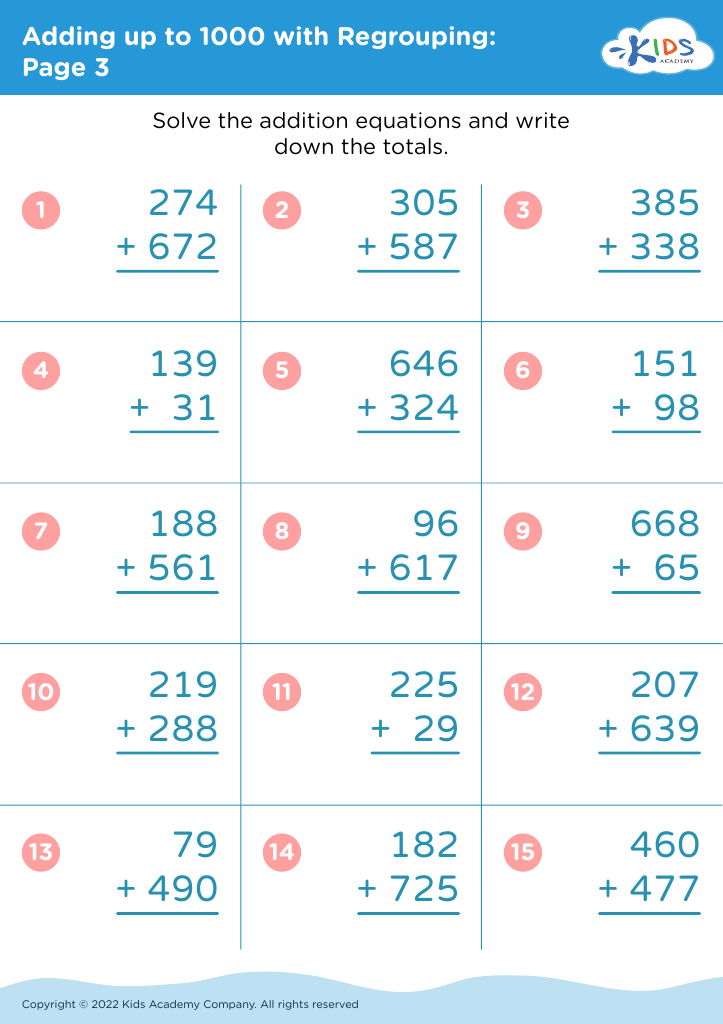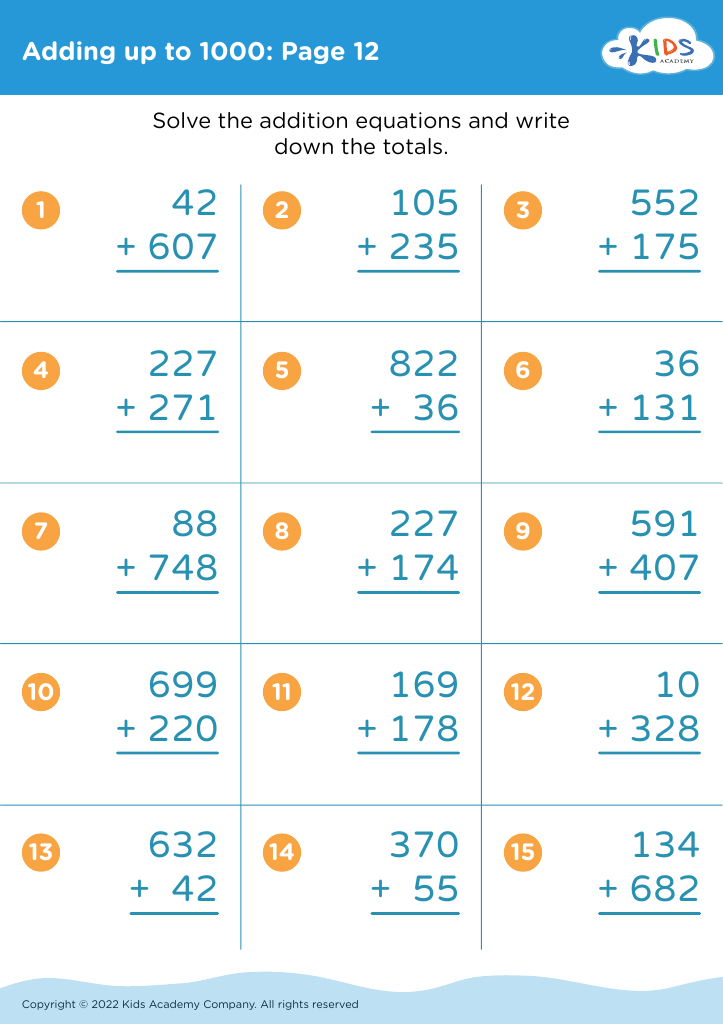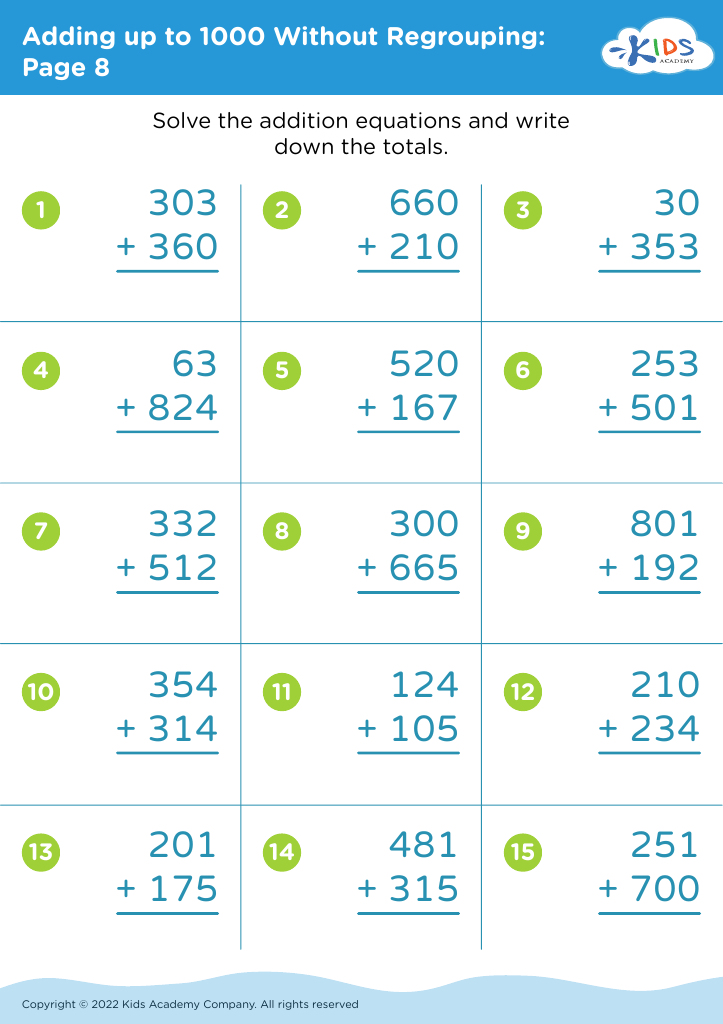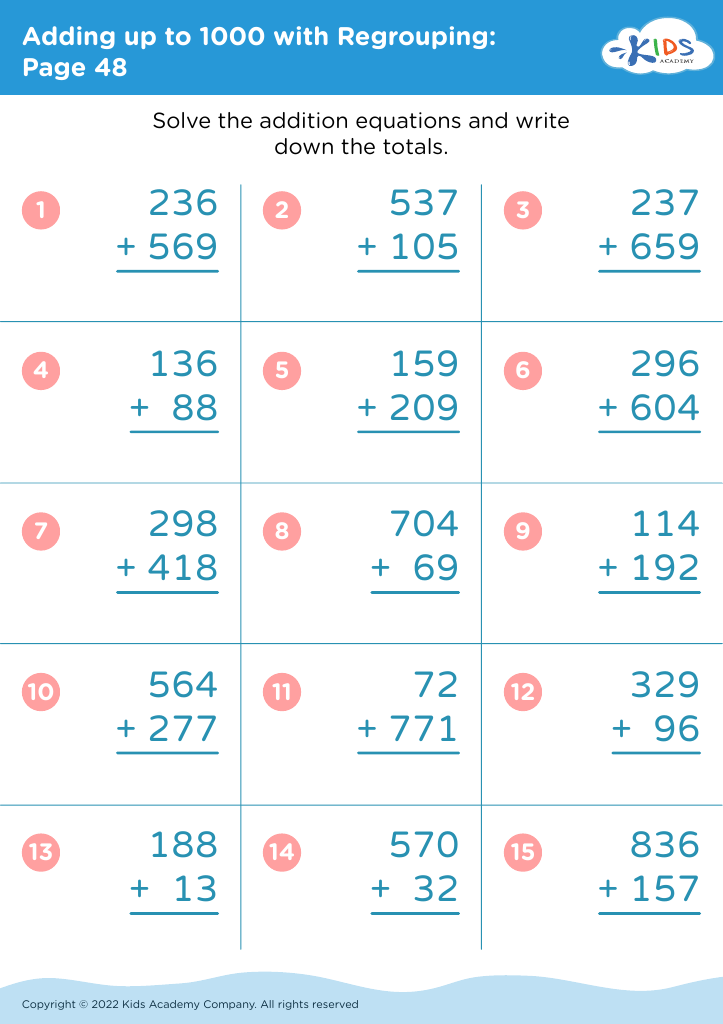Improve reading skills Adding up to 1000 Worksheets
13 filtered results
-
From - To
Enhance your child's reading and math abilities simultaneously with our "Improve Reading Skills Adding up to 1000 Worksheets" at Kids Academy! Our specially designed worksheets not only focus on comprehending and solving problems involving numbers up to 1000 but also integrate reading passages that strengthen reading comprehension. By working on these engaging exercises, kids can develop numerical skills while boosting their reading confidence, vocabulary, and analytical thinking. Ideal for young learners, our worksheets provide a dual benefit, making learning an enjoyable and multifaceted experience. Unlock your child's potential in both math and reading with these carefully crafted resources.
Developing reading skills and basic arithmetic proficiency, such as adding up to 1,000, are cornerstone skills that significantly impact a child's academic achievement and overall cognitive development. Parents and teachers should prioritize improving these skills for several reasons.
First, strong reading abilities enable children to access and understand a broad range of information, fostering a love for learning and empowering them to become independent learners. Reading comprehension is not just about reading books; it's about understanding instructions, following educational content in all subjects, and developing critical thinking skills. Early proficiency in reading lays the groundwork for academic success across all subjects, including mathematics and science.
Similarly, building a strong foundation in arithmetic, such as being able to add up to 1,000, sets the stage for future success in more complex math concepts. These basic math skills are vital for day-to-day activities and play a significant role in academic milestones as children advance through their education. Math promotes logical thinking and problem-solving skills, which are crucial not only in academics but also in real-life situations.
Moreover, mastery of these skills early on helps boost a child’s confidence and self-esteem. Children who experience success in reading and math are more likely to participate actively in class, engage in critical thinking, and approach new challenges with a positive mindset.
In essence, prioritizing the development of reading and math skills equips children with the essential tools they need for a lifetime of learning and problem-solving.
